Edward Rowland Sill | |
|---|---|
 | |
| Born | April 29, 1841 Windsor, Connecticut |
| Died | February 27, 1887 (aged 45) Cleveland, Ohio |
| Occupation | Poet, educator |
| Signature | |
| | |
Edward Rowland Sill (April 29, 1841 –February 27, 1887) was an American poet and educator.
Edward Rowland Sill | |
|---|---|
 | |
| Born | April 29, 1841 Windsor, Connecticut |
| Died | February 27, 1887 (aged 45) Cleveland, Ohio |
| Occupation | Poet, educator |
| Signature | |
| | |
Edward Rowland Sill (April 29, 1841 –February 27, 1887) was an American poet and educator.
Born in Windsor, Connecticut, he graduated from Yale in 1861, where he was Class Poet and a member of Skull and Bones. [1] : 112 He engaged in business in California, and entered the Harvard Divinity School in 1867 but soon left for a position on the staff of the New York Evening Mail . After teaching at Wadsworth and Cuyahoga Falls, Ohio (1868–1871), he became principal of Oakland High School in Oakland, California. [2]
From 1874 to 1882, Sill was professor of English literature at the University of California. His health failing, he returned to Cuyahoga Falls in 1883. He devoted himself to literary work, abundant and largely anonymous, until his death in 1887 in Cleveland, Ohio. [2]
In 1904 Mount Sill, a peak in the Sierra Nevada mountain range in California and the state's sixth-highest mountain, was named for him by noted mountaineer Joseph LeConte. [3]
Much of his poetry was contributed to The Atlantic Monthly , the Century Magazine, and the Overland Monthly . Many of his prose essays appeared in The Contributors Club, and others appeared in the main body of the Atlantic. Among his works are: [2]
A memorial volume was privately printed by his friends in 1887. A biographical sketch in The Poetical Works of Edward Rowland Sill, edited by William Belmont Parker with Mrs Sill's assistance was printed in 1906, and his poem "The Fool's Prayer" (1879) was selected for inclusion in the Yale Book of American Verse in 1912. [4]
Sill was the subject of biographies by William Belmont Parker in 1915 [5] and by Alfred Riggs Ferguson in 1955. [6] According to the Encyclopædia Britannica Eleventh Edition, "He was a modest and charming man, a graceful essayist, a sure critic. His contribution to American poetry is small but of fine quality. His best poems, such as The Venus of Milo, The Fool's Prayer and Opportunity, gave him a high place among the minor poets of America, which might have been higher but for his early death."

Callimachus was an ancient Greek poet, scholar and librarian who was active in Alexandria during the 3rd century BC. A representative of Ancient Greek literature of the Hellenistic period, he wrote over 800 literary works in a wide variety of genres, most of which did not survive. He espoused an aesthetic philosophy, known as Callimacheanism, which exerted a strong influence on the poets of the Roman Empire and, through them, on all subsequent Western literature.

Matthew Arnold was an English poet and cultural critic who worked as an inspector of schools. He was the son of Thomas Arnold, the celebrated headmaster of Rugby School, and brother to both Tom Arnold, literary professor, and William Delafield Arnold, novelist and colonial administrator. Matthew Arnold has been characterised as a sage writer, a type of writer who chastises and instructs the reader on contemporary social issues. He was also an inspector of schools for thirty-five years, and supported the concept of state-regulated secondary education.

Delta Kappa Epsilon (ΔΚΕ), commonly known as DKE or Deke, is one of the oldest fraternities in the United States, with fifty-six active chapters and five active colonies across North America. It was founded at Yale College in 1844 by fifteen sophomores who were discontent with the existing fraternity order on campus. The men established a fellowship where the candidate most favored was he who combined in the most equal proportions the Gentleman, the Scholar and the Jolly Good Fellow.
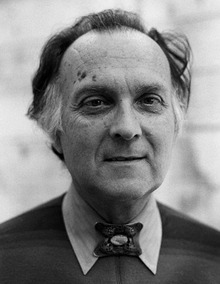
Robert Edward Duncan was an American poet and a devotee of Hilda "H.D." Doolittle and the Western esoteric tradition who spent most of his career in and around San Francisco. Though associated with any number of literary traditions and schools, Duncan is often identified with the poets of the New American Poetry and Black Mountain College. Duncan saw his work as emerging especially from the tradition of Pound, Williams and Lawrence. Duncan was a key figure in the San Francisco Renaissance.
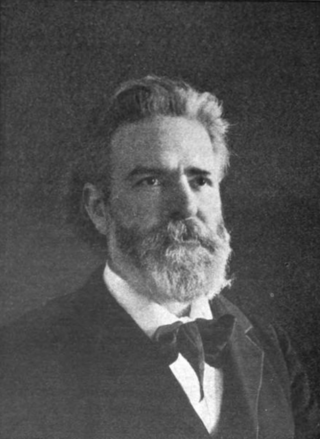
Edwin Markham was an American poet. From 1923 to 1931 he was Poet Laureate of Oregon.

Mark Strand was a Canadian-born American poet, essayist and translator. He was appointed Poet Laureate Consultant in Poetry to the Library of Congress in 1990 and received the Wallace Stevens Award in 2004. Strand was a professor of English and Comparative Literature at Columbia University from 2005 until his death in 2014.
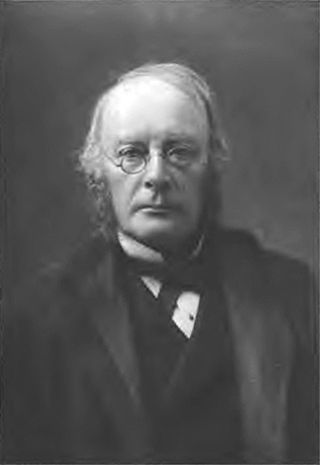
Sir Samuel Ferguson was an Irish poet, barrister, antiquarian, artist and public servant. He was an acclaimed 19th-century Irish poet, and his interest in Irish mythology and early Irish history can be seen as a forerunner of William Butler Yeats and the other poets of the Irish Literary Revival.

George Clement Perkins was an American businessman and politician. A member of the Republican Party, Perkins served as the 14th Governor of California from 1880 to 1883, and as United States Senator from California from 1893 to 1915. He also served in the California State Senate.

Victor Howard Metcalf was an American politician; he served in President Theodore Roosevelt's cabinet as Secretary of Commerce and Labor, and then as Secretary of the Navy.
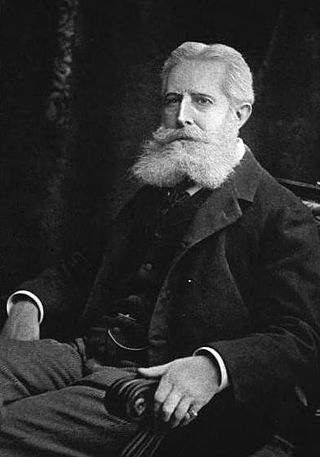
Edmund Clarence Stedman was an American poet, critic, essayist, banker, and scientist.
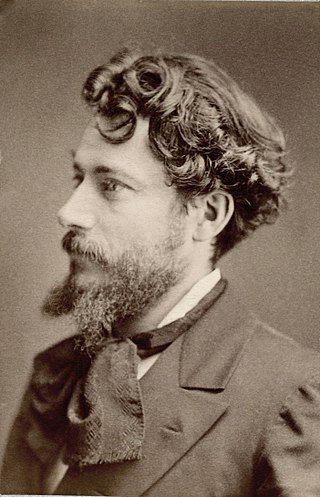
Jean François Victor Aicard was a French poet, dramatist, and novelist.
Gustaf Sobin was a U.S.-born poet and author who spent most of his adult life in France. Originally from Boston, Sobin attended the Choate School, Brown University, and moved to Paris in 1962. Eventually he settled in the village of Goult, Provence, where he remained for over forty years, publishing more than a dozen books of poetry, four novels, a children's story, and two compilations of essays.
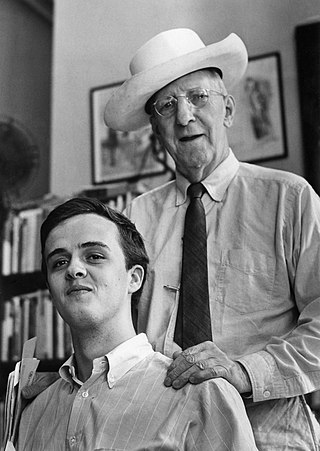
James Vincent Tate was an American poet. His work earned him the Pulitzer Prize and the National Book Award. He was a professor of English at the University of Massachusetts Amherst and a member of the American Academy of Arts and Letters.

Rose Hartwick Thorpe was an American poet and writer, remembered largely for the narrative poem, Curfew Must Not Ring Tonight (1867), which gained national popularity. It was translated into nearly every language of the world and was universally recognized as a veritable classic. Other poems followed, among them being "The Station Agent's Story," "Red Cross," and "In a Mining Town." Although a busy and prolific author, she was ill for some years. In 1888, she and her family removed to San Diego, California, living in Rosemere, Pacific Beach. Thorpe gave San Diego's "False Bay" the new moniker "Mission Bay" in a poem published in 1888 in The Golden Era; the name persists today.
Nationality words link to articles with information on the nation's poetry or literature.
Nationality words link to articles with information on the nation's poetry or literature.
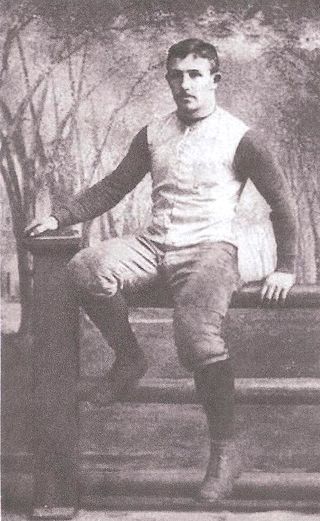
Charles Otis Gill was an American Congregationalist clergyman and college football player and coach. With Gifford Pinchot he co-authored two influential books on the state of rural churches in the United States.
William Belmont Parker was a United States editor.
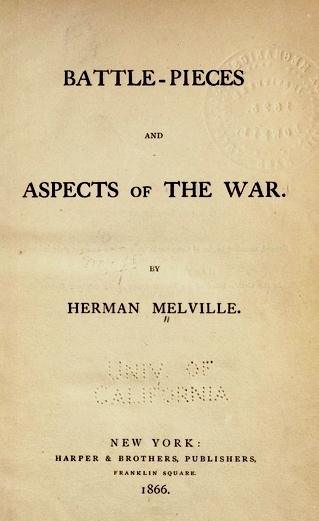
Battle-Pieces and Aspects of the War is the first book of poetry of the American author Herman Melville. Published by Harper & Brothers of New York in 1866, the volume is dedicated "To the Memory of the Three Hundred Thousand Who in the War For the Maintenance of the Union Fell Devotedly Under the Flag of Their Fathers" and its 72 poems deal with the battles and personalities of the American Civil War and their aftermath. Also included are Notes and a Supplement in prose in which Melville sets forth his thoughts on how the Post-war Reconstruction should be carried out.
Lester Bradner Faulkner was an American farmer, lawyer, and politician from New York. He served as Chairman of the New York State Democratic Committee from 1878 to 1881.